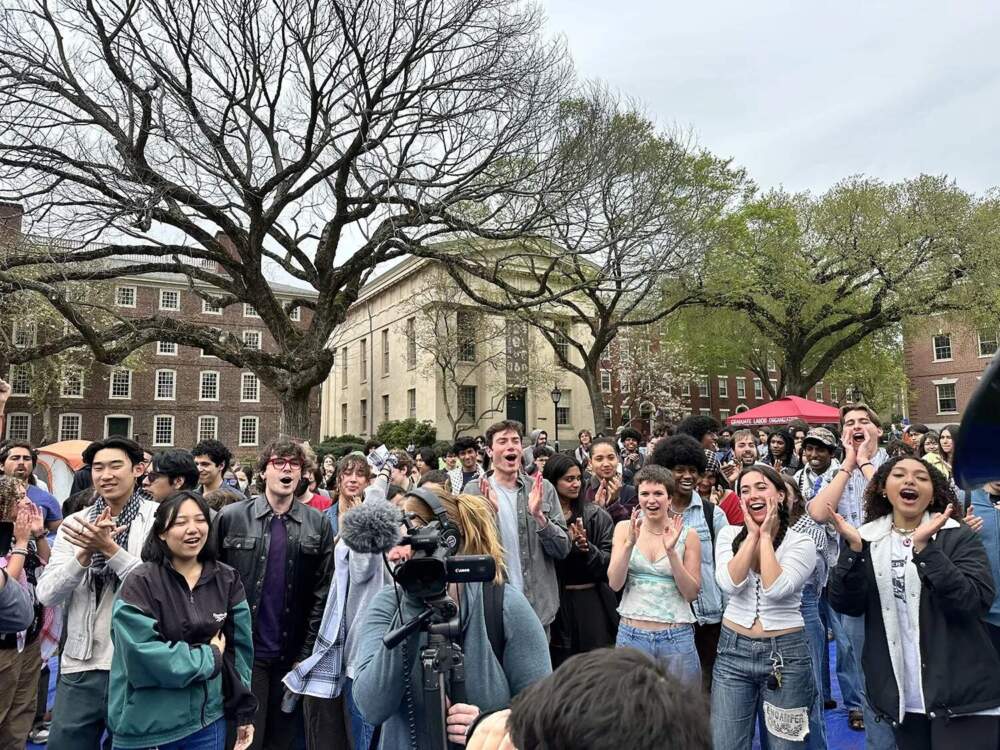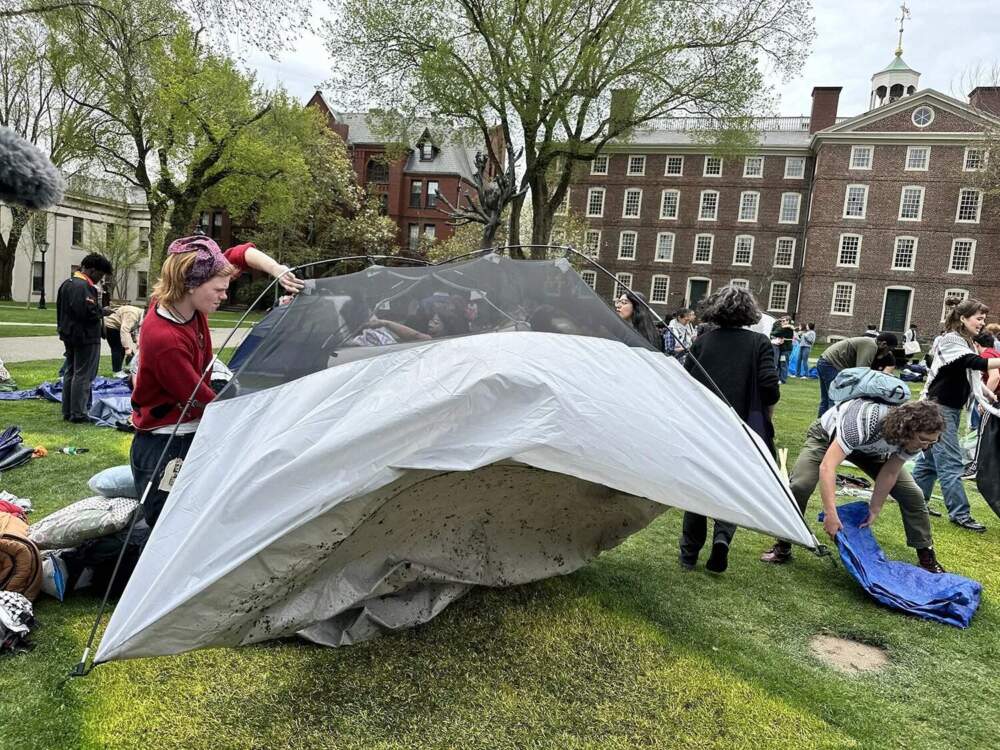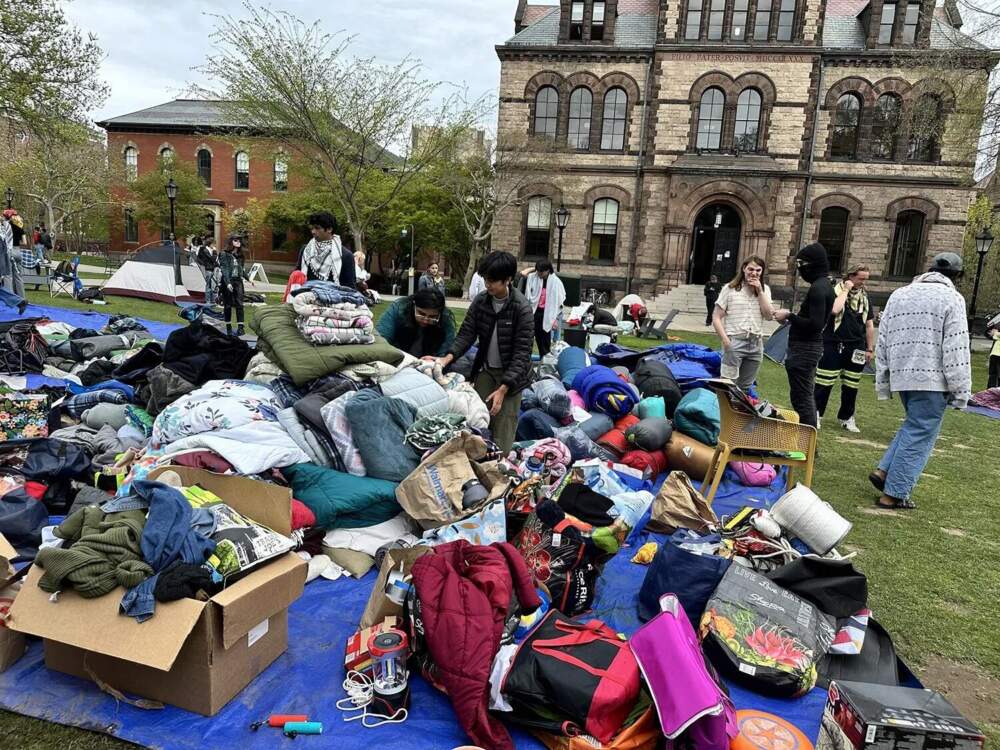Advertisement
Student protesters, administrators at Brown University reach deal to clear encampment

Brown University has reached a deal with the group that launched a pro-Palestinian encampment last week, Brown Divest Coalition.
In exchange for students clearing the encampment by 5 p.m. Tuesday and promising not to engage in unauthorized protests through the rest of the semester, administrators have agreed to bring a divestment proposal to a vote at the Brown Corporation Board’s October meeting. The vote will be based on a previous recommendation a now-disbanded advisory body made to the university’s president in 2020.
After the news of the agreement broke at the encampment Tuesday afternoon, protestors immediately began clearing tents, sleeping bags, trash and food.
Senior Isabella Garo was on the committee of student negotiators who had been in and out of discussions with senior administrators since Monday at 3 p.m.
“I am quite pleased by it. But this has been the demand for every action so far this year–forcing the corporation to have a full body vote on a divestment resolution,” Garo said.
Senior and Israeli-American Rita Feder is a founding member of the campus group BrownU Jews for Ceasefire Now and said she was thrilled the university took these steps, saying it could set a precedent for other universities that are refusing students’ calls for divestment from companies they say profit from human rights abuses in the Palestinian territories.
“This is a historic move to change the American narrative around what is appropriate regarding Israel-Palestine,” she said.

Brown President Christina Paxson, who has for four years declined to bring a divestment vote to the school’s governing body, said she thought students felt positive about the agreement, and that she did too.
“I feel good about this and I think we’ve come to a good agreement and I’m pleased that we’re moving in a good direction,” Paxson told The Public’s Radio.
As a part of the agreement, the university agreed not to expel or suspend students or faculty members, based on what the University knows about their participation at this time.
That section of the agreement reads, “No member of the Brown community—including faculty, staff, graduate students, undergraduate students, or alumni—found to have been involved in the encampment or related activity will face retaliation from the University, including termination of employment or reduction in compensation.”
However, campus community members may still face internal disciplinary action from their school.

However, the students did concede one point. Although the 41 students previously arrested at Brown University in December while protesting after-hours in an administrative building will no longer face internal discipline for their actions, the school will not ask for legal charges against them to be dropped.
“Is it absolutely everything we wanted? No,” said Garo, who was one of the 41 arrested.
Garo said the student activism will continue with one primary goal.
“Ultimately, what we want is Brown to divest in full from the Israeli occupation and the genocide in Gaza,” she said.
The Public’s Radio in Rhode Island and WBUR have a partnership in which the news organizations collaborate and share stories. This story was originally published by The Public's Radio.